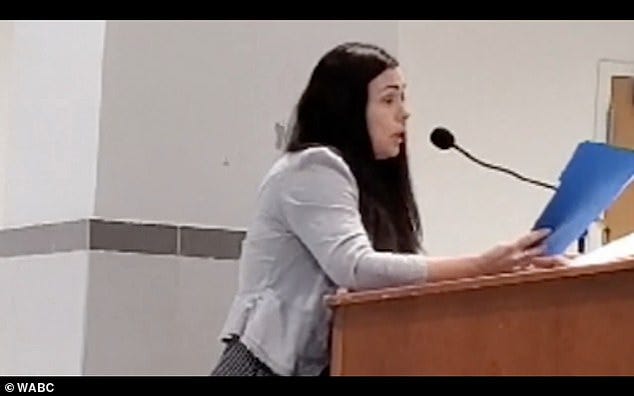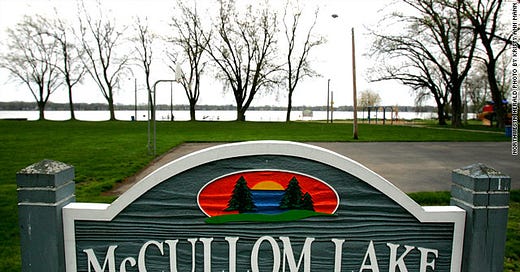What caused my cancer? - Part 1
A difficult question to ask, but sometimes we can learn from clues.
Causes of cancers can be difficult to identify and there are many angles of approach we can take in an attempt to answer this question. Over the years I have speculated about what may have caused my cancer based on diagnostic imaging, symptoms prior to diagnosis and key events in my life where I may have been exposed to certain stressors and/or environmental carcinogens that we know can contribute to the development of tumours.
We know unequivocally that ionising radiation can cause cancer and that volatile organic compounds such as trichloroethylene and vinyl chlroride have strong associations with brain cancer. The risk of other exposures can be difficult to quantify, though cancer clusters and mechanistic data can provide us with clues.
I covered cancer clusters, and more specifically the infamous McCullom Lake brain cancer cluster on my Youtube channel.

Since then, I have investigated several other cancer clusters, many of which have been identified by citizen scientists. In one such case from last year, it was an Environmental Scientist, Edyta Komorek, who, as part of a community of individuals, raised concern about a cancer cluster at a New Jersey High School in the USA.
Edyta was able to expertly analyse dust and soil from the town, finding unacceptably high levels of carcinogens. The results of the study identified four compounds that were the likely cause of this brain cancer cluster: polychlorinated biphenyls and three pesticides -- chlordane, heptachlor and heptachlor epoxide. Reportedly over 120 people who spent prolonged periods of time inside Colonia High School have since been diagnosed with brain tumours. Edyta has given a number of interviews detailing the case and her involvement, including having been featured on Good Morning America about her fight for justice.

Viruses can also potentially contribute to the development of brain cancer. Certain viruses have been identified as potential risk factors, including human cytomegalovirus (HCMV) and Epstein-Barr virus (EBV), which have been found in some brain tumours, particularly glioblastoma.
It is important to note that every case is individual, even if in the cases I have highlighted we have consistent variables affecting communities.
What about my situation?
In my case, there have been a number of theories that present possible causes or at least contributory factors to the occurrence of my brain cancer. It still amazes me how characteristics of the tumour that I had, even among brain tumours, is incredibly rare to the point where you would have more chance of winning the lottery.
With that being said, what I find even more fascinating is that these occurrences, with striking similarity to my case, appear to be popping up in the literature with increasing regularity. Still rare, but relatively less so.
At the time of my diagnosis this was almost unheard of. I’m not quite sure what that means.

I will be going into more depth about what I think it means in my specific case in the next post. I have already written out most of it, but there is so much information that needs to be dissected and then condensed.
I have a unique perspective and I try to examine all the evidence that answers all of the questions that came up surrounding my diagnosis and the events leading up to it. I hope that it will shed some light on how these tumours can occur to provoke further discussion on what we can do about it.
I look forward to sharing my ideas shortly.



Hi Andrew! Much like so many of us who have spent years investigating, researching, and studying every piece of clinical scientific literature we can get your hands on concerning our individual diagnosis, you could have a medical degree from a prestigious college after all the time and attention you have invested! Bravo, my fellow traveler! I’m proud of your tenacity and outright need to understand the how’s, why’s, way’s and where’s concerning brain cancers!
Maybe reading through this article about MS clusters will give you more ideas on where and how to search for brain tumor clusters.
Clusters of MS and What That Might Mean
“When many cases of multiple sclerosis (MS) occur in a certain area or within a distinct amount of time, it is sometimes referred to as a cluster of MS. Scientists have studied these clusters in an attempt to identify new causes or risk factors for MS. However, these studies have failed to produce any clear evidence for new risk factors associated with the disease.”
https://www.mymsteam.com/resources/clusters-of-ms-and-what-that-might-mean
Seems the more information we collect, the more questions arise! I’m positive you are helping to make a difference in so many lives! Keep at it! I’m rooting for you!